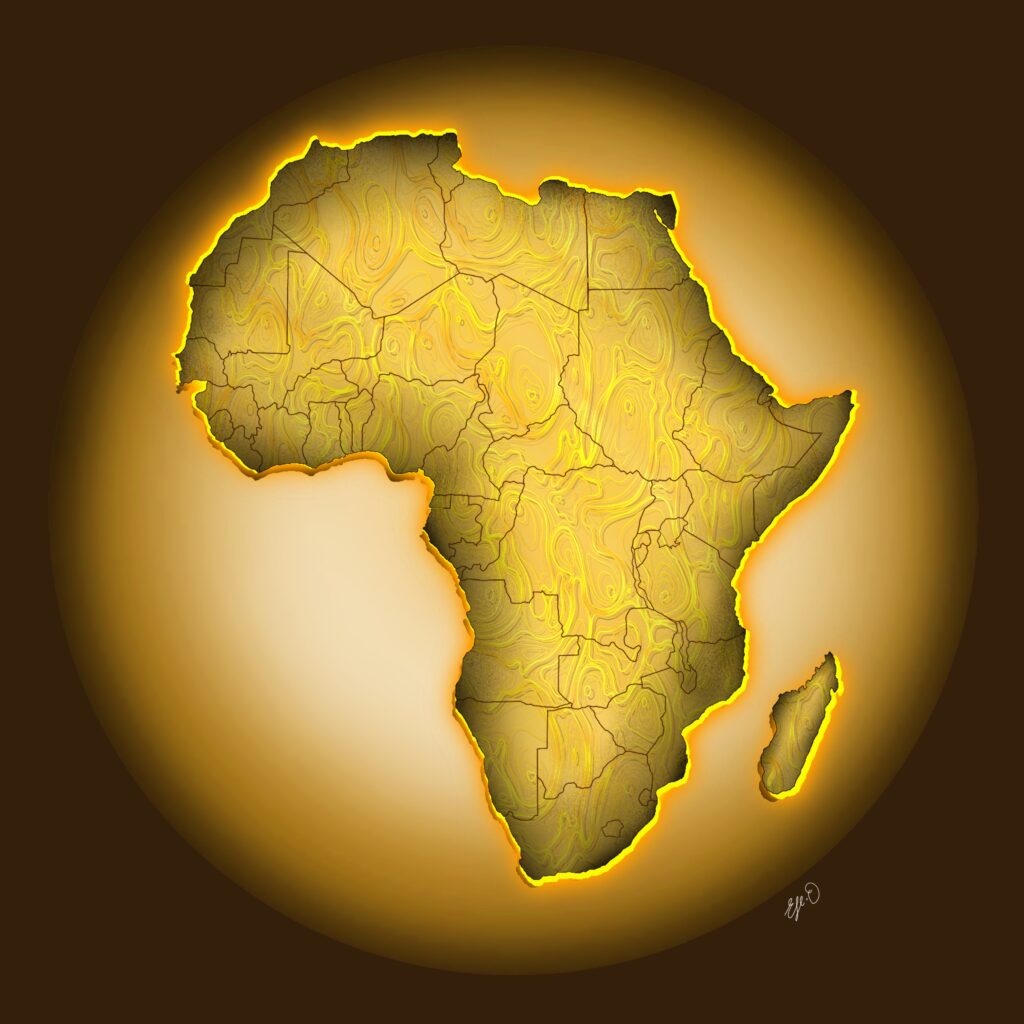The International Decade for People of African Descent (Decade), proclaimed by the United Nations General Assembly (UNGA) through Resolution 68/237, spanned from January 2015 to December 2024. Under the overarching theme of “People of African Descent: Recognition, Justice, and Development”, the Decade aimed to address the historical injustices, discrimination, and inequalities faced by people of African descent worldwide. The global call to action’s origins trace back to the 2001 World Conference against Racism, Racial Discrimination, Xenophobia, and Related Intolerance, which laid a critical foundation for this initiative by highlighting the need for global recognition and reparatory justice for people of African descent.
People of African descent have long endured systemic racism and Anti-Blackness, colonization, enslavement, and socio-economic disenfranchisement. The legacy of the transatlantic slave trade, colonial exploitation, and apartheid systems left deep scars in nations across the Americas, Africa, Europe, and beyond. Despite strides in human rights advocacy, such as the abolition of slavery, the civil rights movement, and global anti-apartheid campaigns, systemic inequalities persist in many forms. Right here in Canada, the historic and contemporary plight of the African diaspora is marked by systemic exclusion, racial discrimination, and ongoing struggles for justice and equality. The Decade marked an effort to unify global attention and resources towards addressing all of these enduring issues.
Right here in Canada, the historic and contemporary plight of the African diaspora is marked by systemic exclusion, racial discrimination, and ongoing struggles for justice and equality.
A critical factor perpetuating inequalities has been neocolonialism—the modern forms of economic, political, and cultural domination that perpetuate the power dynamics established during colonial times and that continue on today. Neocolonial practices, such as exploitative trade agreements, resource extraction, and debt dependency, have hindered the economic development of many African nations and Afro-descendant communities.
These systemic issues exacerbate socio-economic disparities and perpetuate the marginalization of people of African descent globally.Recognizing the historical context was critical in setting the stage for the Decade’s initiatives. By addressing these systemic inequities, the Decade sought to acknowledge the past while paving the way for a more equitable future.

Key objectives of the Decade
The UN’s initiative aimed to achieve three primary objectives:
- Recognition: Enhancing visibility and acknowledgment of the contributions of people of African descent on global culture, science, and history. This objective also emphasized combating stereotypes and biases through education and media representation.
- Justice: Promoting equality under the law, addressing systemic racism, and implementing policies that safeguard the rights of people of African descent.
- Development: Ensuring inclusive socio-economic growth by investing in education, healthcare, employment, and housing for communities of African descent.
The focus on these pillars aimed to create a holistic approach to tackling inequality, with recognition fostering pride and understanding, justice-providing protection and redress, and development ensuring sustainable progress.
One of the most visible effects of the Decade has been the global spotlight on systemic racism and the need for equity. The United Nations (UN) response to the murder of George Floyd by a white police officer in 2020 was a turning point in its engagement with the global conversation on systemic racism and anti-Blackness. The Office of the United Nations High Commissioner for Human Rights (OHCHR) issued a statement condemning the killing as a symptom of entrenched racism in policing systems.
Michelle Bachelet, UN High Commissioner for Human Rights, called for urgent reforms to address racial profiling and police brutality. In June 2020, the UN Human Rights Council held an urgent debate on systemic racism, resulting in a resolution mandating a report on systemic racism, law enforcement practices, and responses to peaceful protest. The resolution was brought by African countries, once more establishing that it is people of African descent continuously leading the charge to advocate for other people of African descent elsewhere on the globe.
The Decade succeeded in bringing the issue of police brutality against Black individuals to the forefront, arising as a direct result of grassroots movements.
In response to the anti-riot laws in the U.S. revived by Congress following Floyd’s murder, Clément Nyaletsossi Voule, the UN Special Rapporteur on the rights to peaceful assembly and association remarked: “The adoption of new state laws in Florida and Oklahoma, among others, aimed at suppressing racial justice protests and the Black Lives Matter (BLM) movement, appears to violate international law and the U.S. Constitution’s protection of the right to peaceful assembly.” She further noted that “the targeting of the BLM movement, while creating legal protections for those who attack them, is deeply disturbing.”
Despite the Decade’s goal to reframe and safeguard the rights of people of African descent, member states may still implement legislation and measures that disproportionately target this group without substantial accountability from the international community. However, the Decade succeeded in bringing the issue of police brutality against Black individuals to the forefront, arising as a direct result of grassroots movements in the U.S., the U.K., Canada, and beyond, where BLM groups fought tirelessly to demand change. Many view the acknowledgment of this persistent problem as a significant achievement, particularly given the U.S.’ dominance on the global stage.
A superficial gesture?
In Canada, the historic and ongoing struggles of people of African descent are defined by slavery, systemic exclusion, racial discrimination, and an enduring fight for justice and equality. From the earliest waves of Black migration—whether through the Underground Railroad, Loyalist settlements, or Caribbean labour programs—Black Canadians have faced persistent segregation, economic barriers, and legal injustices. A glaring example of this is Africville, Nova Scotia, a Black community founded in the early 19th century. Despite paying taxes, residents were denied basic services such as clean water, sewage, and paved roads. In the 1960s, the city of Halifax forcibly evicted Africville’s residents under the pretense of “urban renewal,” demolishing homes and displacing families without fair compensation. This act of systemic erasure exemplifies a broader, ongoing pattern of dispossession and racial inequality in Canada.
Canada officially acknowledged the historical injustice of Africville and the broader legacy of anti-Black racism through various acts of recognition and reconciliation. In 2010, the Government of Nova Scotia issued an official apology to the residents and descendants of Africville, recognizing the wrongful displacement and erasure of the community. This was followed by a commitment to preserve the Africville site and its history.
Without significant, sustained change, efforts like the Decade risk becoming mere tokens of acknowledgment rather than drivers of true transformation.
Many of the Canadian government’s efforts regarding anti-Black racism appear performative. The Canadian government did not officially recognize the Decade until 2018, three years after it came into effect. Canadian political leaders continue to make statements about systemic racism but do not address anti-Blackness materially. They also fail to commit to meaningful, long-term policy shifts that could have lasting positive effects for Black Canadians and all Canadians writ large.
Recognition alone is insufficient. Canada must move beyond rhetorical and symbolic gestures and enact concrete laws and policies that structurally dismantle anti-Black racism. Rather than relying on short-term initiatives, a comprehensive approach is needed to address the deep-rooted inequities that continue to affect Black communities in Canada. Without significant, sustained change, efforts like the Decade risk becoming mere tokens of acknowledgment rather than drivers of true transformation.

Addressing historical and structural inequalities
Elsewhere in the West, the Windrush scandal of 2018 in the U.K. revealed systemic injustices faced by Afro-Caribbean migrants—known as the Windrush generation—who were invited to the U.K. after World War II to assist in national reconstruction. The scandal highlighted the enduring impact on subsequent generations of British-born individuals. Despite their significant contributions, many were subjected to detainment, wrongful deportation, job loss, and denial of healthcare due to a hostile immigration environment.
In response, the U.K.’s Home Secretary commissioned the 2020 independent report titled “Windrush Lessons Learned Review” to recommend changes and improvements. In its 2024 report, the UN Committee on the Elimination of Racial Discrimination expressed concern that the recommendations from the review had been only partially implemented and that some key recommendations would not be adopted by the U.K. government. This criticism of the U.K.’s approach, including its compensation scheme, which has faced backlash for delays and inadequacies, underscores the persistence of racial injustice and the urgent need to address historical and structural inequalities affecting people of African descent.
UN agencies continue to play a pivotal role in holding member states accountable for progress made towards the implementation of the goals of the Decade. Several countries that are member states implemented policy reforms to address racial inequalities such as:
- Brazil: Strengthened its affirmative action programs in education and employment, significantly increasing the representation of Afro-Brazilians in universities and public sector jobs.UN Women Brazil, through the advocacy and communication initiative “Black Women Towards a Planet 50-50 by 2030,” supported by the Netherlands, has been working to enhance the capacity of Black women activists to engage in national and international efforts to reduce gender inequality, including participation in the Commission on the Status of Women.
- Colombia: Recognized Afro-Colombian territories and invested in community-led development projects.
- Argentina, Colombia, Ireland, Mexico, South Africa, Spain, and Turkey enacted laws prohibiting racial profiling and racial discrimination.
- Canada: Introduced anti-racism strategies, including the establishment of the Anti-Racism Secretariat to combat systemic racism.
- United States: Passed the George Floyd Justice in Policing Act to address police brutality, although its implementation remains a challenge.
The Decade also catalyzed the establishment of the UN’s Permanent Forum on People of African Descent, a consultative body to address issues affecting these communities globally. This forum provides a crucial platform for advocacy and accountability, enabling member states to share best practices and align their policies with the Decade’s objectives.
In addition, regional bodies like the African Union and the Organization of American States (OAS) adopted resolutions to support the Decade’s goals, further embedding its principles into regional frameworks. The OAS published a regional report on the status of people of African descent and the progress in implementing the Decade’s plan of action, acknowledging that “racism, racial discrimination, and related forms of intolerance, including colorism, have been and continue to be part of our societies.” The report further emphasized that “many efforts remain pending to promote the full, free, and equal participation of Afro-descendants in all aspects of political, economic, social, and cultural life,” highlighting the significant work that still lies ahead.
Data as a catalyst for change
A key component emerging from the initiatives of the Decade is the emphasis on research and data collection. The Decade encouraged efforts to gather data and conduct research to expose the extent of racial disparities in critical areas such as healthcare, education, and law enforcement. Reports from institutions like the World Bank and the OHCHR have pinpointed the significant economic and social gaps faced by people of African descent, hoping to motivate world leaders to implement policy and legislative reforms. These research initiatives have provided crucial insights into the intersectionality of race, gender, and class. For instance, studies have highlighted the disproportionate impact of maternal mortality on African women, which has led to targeted interventions to address these disparities.
Collectively, this focus on research and data collection has not only illuminated systemic inequities but has also catalyzed global action toward addressing the challenges faced by people of African descent.
Black women often face compounded challenges due to the intersection of race and gender. Issues such as pay gaps, underrepresentation in leadership roles, and disproportionate rates of violence and healthcare disparities highlight the unique struggles of Black women. For example, Afro-descendant women in Latin America face significantly higher rates of poverty compared to their male counterparts or women of other racial backgrounds. Similarly, in the U.S., Black women experience higher maternal mortality rates due to systemic misogynoir in healthcare. Addressing these intersectional issues requires tailored policies that recognize and combat the overlapping forms of discrimination they endure.
Collectively, this focus on research and data collection has not only illuminated systemic inequities but has also catalyzed global action toward addressing the challenges faced by people of African descent.
Challenges remain
Despite notable achievements, the International Decade for People of African Descent faced significant challenges that hindered its full realization.
- Lack of Binding Commitments: The Decade’s framework relied heavily on voluntary participation by member states. Many governments failed to allocate adequate resources or implement meaningful policies to address the objectives. This lack of binding commitments limited the initiative’s impact.
- Persistent Systemic Racism: The persistence of systemic racism and anti-Blackness in policing, education, healthcare, and employment highlights the enduring challenges faced by people of African descent. High-profile cases of police brutality, such as the deaths of Jean-René Junior Olivier in Canada, George Floyd and Breonna Taylor in the U.S., and Chris Kaba in the U.K. showcased the limitations of existing measures to ensure justice and equality.
- Economic Disparities: While the Decade emphasized development, economic disparities remain stark. People of African descent disproportionately experience poverty, unemployment, and underemployment. Structural barriers, such as limited access to quality education and discriminatory lending practices, perpetuate these inequalities. Many Black individuals, particularly from countries in Africa, are subjected to forms of forced labour and human trafficking, often under the guise of employment all around the world. These workers are frequently recruited under false promises of well-paying jobs but are instead trapped in abusive situations that further exacerbate the foundational ties of exploitative labour practices to systemic racism and anti-Blackness.
Why have the voices and outcries of a people over decades not been enough? Why has governmental action and policy change only materialized once a group’s experiences—who are far from a monolith have been quantified?
- Over-reliance on Data: The emphasis on research and data collection has also driven global efforts to address the challenges faced by people of African descent. The overwhelming reliance on data to validate these struggles is unsurprising as many advocate that numbers equal representation. However, numbers alone cannot capture lived experiences. Instead, they condense them into quantifiable metrics, often diminishing the voices of those already marginalized. Notably missing from this discourse are LGBTQIA+ Black individuals, a group that has long been silenced and remains largely unrepresented in both research and data collection. This raises a crucial question: Why have the voices and outcries of a people over decades not been enough? Why has governmental action and policy change only materialized once a group’s experiences—who are far from a monolith—have been quantified? The answer lies in the broader societal reluctance to address these inequities unless they are framed in colonial interpretations and frameworks of “data,” which risks reducing the complexity of lived experiences to mere statistics.
- Rising Populism and Xenophobia: The rise of populism, xenophobia, and racism in many countries poses a significant threat to the progress made during the Decade. Policies and rhetoric targeting immigrants and marginalized communities undermine the principles of recognition, justice, and development. The resurgence of far-right movements has created a climate of fear and uncertainty for Afro-descendant communities. Trump’s second term in U.S. office, coupled with Pierre Poilievre’s rising influence in Canada, has begun ushering in anti-immigration policies deeply rooted in systemic racism and anti-Blackness. These policies are stoking fear and division, perpetuating an environment of exclusion while amplifying racial prejudice and further marginalizing already vulnerable communities.
Lessons learned and key takeaways
The Decade offers several lessons for future initiatives aimed at promoting equity and justice:
- Inclusive Collaboration: Success requires collaboration among governments, international organizations, civil society, and grassroots movements. Initiatives should engage affected communities to ensure their perspectives shape policies.
- Accountability Mechanisms: Binding commitments and clear accountability frameworks are essential for meaningful progress. Monitoring and evaluation systems can track the implementation and outcomes of policies.
- Focus on Intersectionality: Efforts to address racial inequalities must consider intersecting factors like gender, class, and disability.
The International Decade for People of African Descent has undeniably made progress in raising global awareness, promoting cultural pride, and inspiring policy reforms. However, significant challenges persist, especially in addressing systemic racism, colourism, anti-Blackness, economic disparities, and intersectional issues. As the current decade draws to a close, the rise of populism, xenophobia, and racism serves as a stark reminder of the work still ahead.
Another decade announced
In December, the UNGA adopted a second International Decade for People of African Descent, which will span from January 2025 to December 2034. This renewed commitment emphasizes the need for sustained efforts, binding commitments, and inclusive collaboration to ensure that the momentum from the first decade results in lasting and meaningful change for people of African descent worldwide.
Grassroots movements have long been at the forefront of advocating for the rights of Black people, often without the support of formal political structures. These movements are vital, as they bring forth the lived realities of those affected by systemic racism and anti-Blackness, pushing for real, tangible change. From community organizing to direct action, Black people have continuously demanded justice, yet their voices have been dismissed or ignored by those in power. In this context, it is critical for all Canadians—not just politicians and international bodies like the UN—to engage in the work of dismantling the structures of systemic racism that persist.
As the decade is renewed, ordinary Canadians must examine their complicity in upholding the systems of inequality and anti-Blackness that continue to marginalize Black communities. It is time for meaningful action that extends beyond words, for genuine reconciliation and the real transformation of institutions that reflect the needs and rights of people of African descent everywhere. The work is far from over, and it is a collective responsibility to make sure that the fight for justice and equality does not falter in the face of complacency.
Samah Nimir is a lawyer based in Tkaronto/Toronto. As a Black Muslim woman, her passion lies in advocating and ensuring that human rights are not only reserved for those with power.

